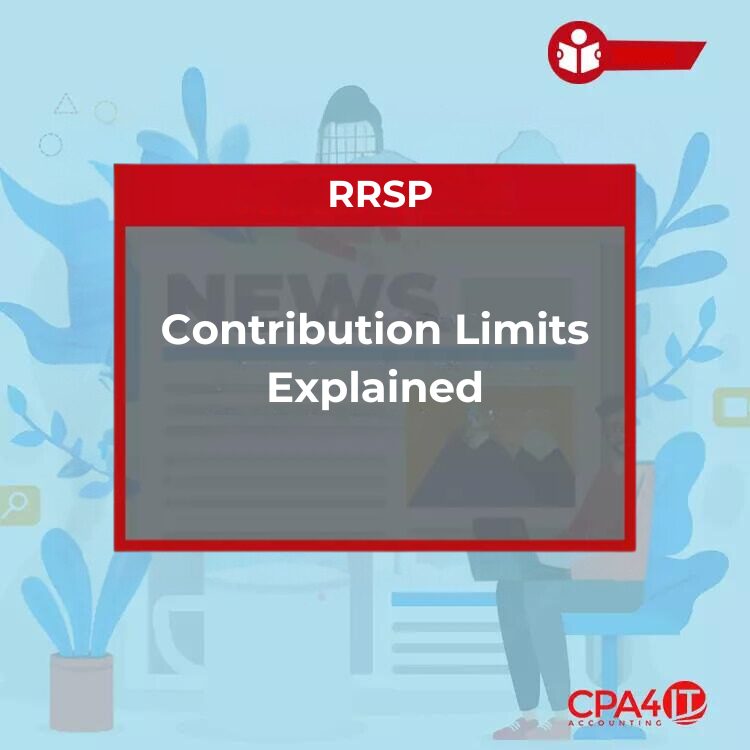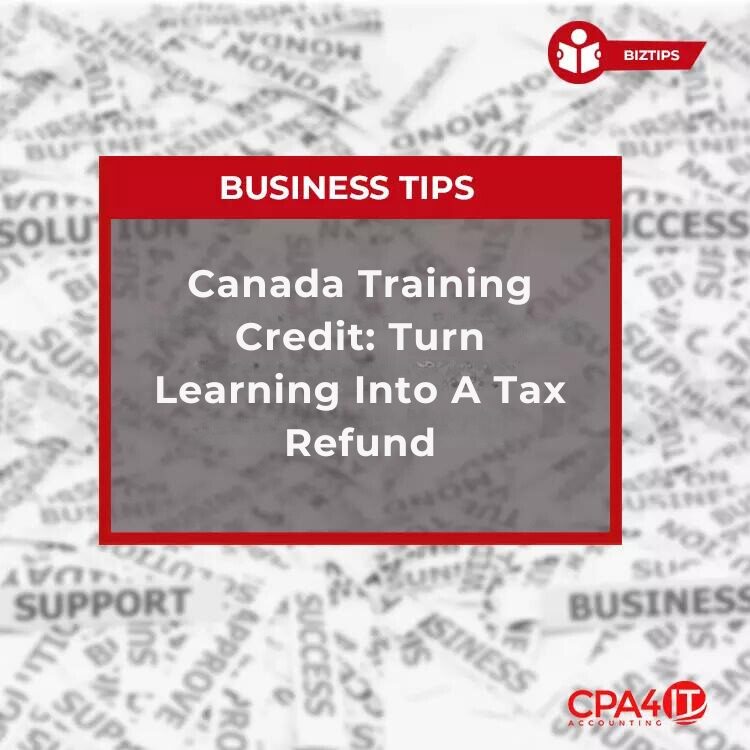Independent contracting has become an appealing model for professionals in Canada, offering greater flexibility, higher earning potential, and more control over one’s work. However, despite its popularity, the industry faces significant challenges—especially around regulatory compliance and the risk of being classified as a Personal Services Business (PSB) by the Canada Revenue Agency (CRA).
Andrew Wall – Managing Partner CPA4IT, a seasoned voice in the tax and compliance landscape for IT contractors, shared valuable insights during a recent webinar on how independent contractors and staffing agencies can navigate these issues. His focus was on the practical steps that must be taken to maintain contractor status and protect the future of this thriving segment.
The Fragile Balance of Independence
One of the key messages emphasized throughout the discussion was the delicate nature of Canada’s independent contractor ecosystem. While the model is working well for now, it is vulnerable to disruption if contractors, agencies, and end clients do not consistently follow the rules set out by federal and provincial authorities.
The issue becomes especially complex when considering that two governing bodies—CRA and provincial employment standards authorities—often have separate and conflicting interpretations of what constitutes a contractor. Without a coordinated regulatory framework, contractors face a risk that could, in time, erode the viability of independent contracting in Canada.
The Personal Services Business (PSB) Designation and Why It Matters
A central concern for independent contractors is the risk of being classified by the CRA as operating a Personal Services Business. This designation implies that the contractor is essentially functioning as an employee, not an independent business. When this happens, the financial impact can be severe.
A contractor deemed a PSB is subject to a significantly higher tax rate and is disallowed from claiming many typical business deductions. The CRA can also retroactively reassess prior tax years, potentially resulting in liabilities amounting to tens of thousands of dollars. This risk is not theoretical—it’s already materializing in audits and pilot projects launched by CRA.
During the CRA pilot project, contractors received letters that appeared innocuous but were crafted in a way that could lead individuals to admit to PSB status unknowingly. These communications, framed as voluntary surveys or calls for clarification, often led to informal interviews where contractors inadvertently provided information that compromised their status.
Common Compliance Pitfalls
Several patterns have emerged around how contractors inadvertently put themselves at risk. Here are the four core pillars that the CRA uses to assess whether someone is truly an independent contractor:
- Risk of Profit or Loss
- Control
- Ownership of Tools
- Integration into the Client’s Business
Of these, control and integration are the most common areas where contractors slip up. Even well-meaning professionals may unknowingly describe their working arrangement in a way that suggests they are under the direction or control of their client—such as agreeing to fixed work hours or complying fully with internal procedures without maintaining their own policies.
Another common oversight is failing to demonstrate genuine business risk. Independent contractors are expected to operate like businesses, which includes carrying insurance, taking on financial risk, and being responsible for their own tools and services. Contractors who don’t invest in professional liability coverage or who rely entirely on the infrastructure of their clients may be exposing themselves to PSB reclassification.
The Importance of Insurance in Demonstrating Independence
Carrying the right insurance is not just about protecting oneself from liability—it also supports a contractor’s claim of being an independent business. Insurance demonstrates that the individual is taking on business risk, which is a crucial aspect of contractor status under CRA rules.
Errors and omissions insurance, commercial general liability, and disability coverage all serve this dual purpose. Not only do they protect contractors in case of legal or health-related challenges, but they also strengthen the case for independence during a CRA audit.
Contractors who operate without this safety net risk not only financial exposure but also a weakened defense if their business model is ever scrutinized. Insurance is a critical yet often overlooked aspect of being an independent contractor. Many assume that working with reputable clients protects them from liability, but even small missteps—like a missed deadline or a project outcome that falls short—can result in expensive legal claims, regardless of fault. Professional liability (errors and omissions) insurance and commercial general liability coverage are essential for protecting against these risks. Prolink offers tailored insurance programs specifically for independent contractors, bundling these coverages to meet both legal requirements and client expectations. Relying on a staffing agency’s insurance can be risky, as contractors often lack clarity on what is actually covered. Having a personal, well-structured insurance policy through Prolink not only fills those gaps but also strengthens a contractor’s credibility and compliance, supporting their independence and long-term stability in the field.
How Staffing Agencies Fit Into the Picture
Agencies have a pivotal role to play in ensuring that independent contractors remain compliant. Andrew pointed out that reputable agencies often go the extra mile to ensure that onboarding, contracts, and compliance protocols are properly managed. However, not all agencies take this responsibility seriously. Contractors should be selective and align themselves with firms that are members of recognized industry associations like Access. These agencies are more likely to follow best practices, stay informed on legal updates, and provide contractors with resources to maintain their status and avoid audit risk.
ACSESS, plays a vital role in supporting independent contractors by promoting education, advocacy, and compliance across the staffing industry. While the organization primarily represents staffing firms, its impact directly benefits contractors by ensuring agencies operate with a strong understanding of legal and regulatory standards. ACSESS provides its member agencies with up-to-date resources, training, and guidance on complex issues like worker classification and licensing requirements, which ultimately helps protect independent contractors from misclassification and audit risks. By choosing to work with an ACSESS-member agency, contractors align themselves with firms that follow a strict code of ethics, understand the nuances of tax and employment law, and are committed to supporting compliant, sustainable contractor relationships. They are making continuous efforts to work with government bodies to bring clarity to gray areas in legislation—efforts that help safeguard the independent contracting model in Canada.
The PSB Pilot Project: A Cautionary Tale
The CRA’s PSB pilot project serves as a strong warning about what’s at stake. As part of the initiative, the CRA examined staffing agencies, independent contractors, and their end clients to determine how many arrangements resembled employment rather than independent business relationships.
The pilot’s first phase targeted companies likely to hire PSBs. From there, letters were sent directly to contractors—some of which implied that their previous tax filings might need “correction.” Though framed as voluntary, these letters carried weight and, in some cases, asked contractors to call CRA representatives to answer compliance-related questions. Participating in these calls without preparation or proper knowledge was risky. Contractors were often asked leading questions—such as whether they followed client procedures or worked set hours—that could compromise their independent status. It is better to respond in writing, giving contractors time to review and properly frame their answers.
Proactive Education and Representation
Education remains the most powerful tool in protecting contractor status. Contractors who understand CRA criteria, maintain accurate records, secure insurance, and use properly constructed contracts are much better positioned to survive an audit.
For those seeking professional help, firms like CPA4IT offer audit representation, ongoing tax planning, and compliance support tailored specifically to independent contractors. Their niche focus enables them to stay ahead of industry developments and regulatory trends that more generalized firms might overlook.
Representation during an audit can make a significant difference. Many contractors aren’t aware that, even after filing taxes properly, they can still be reassessed by the CRA if their working arrangement doesn’t align with independent business criteria.
A Call for Industry-Wide Consistency
There is a need for consistency in contracts and compliance requirements across the staffing industry. Many of the current challenges stem from contractors receiving different guidance from different agencies, leading to confusion and misinformation. Standardizing certain expectations—such as insurance requirements and contract terms—could help reduce misclassification risk and enhance clarity for everyone involved. The goal should be to make the system more black-and-white and less vulnerable to subjective interpretation.
Final Thoughts
Independent contracting in Canada continues to offer immense value to professionals and businesses alike, but its sustainability depends on collective responsibility. Contractors must approach their work as business owners, not just service providers. Agencies must commit to high standards of compliance and education. And all stakeholders must stay informed about evolving rules, particularly as government agencies continue to scrutinize the sector.
Support and Resources For Independent Contractors
Our firm offers unique tools and services to support independent contractors in minimizing risk related to personal service business assessments and employment law issues. These include:
- Audit Representation Protection: We provide representation at no additional cost if you are assessed, ensuring you have access to knowledgeable resources without financial burden.
- Personal Service Business Protection: It is extremely important to protect yourself from being classified as a Personal Services Business (PSB) by the Canada Revenue Agency (CRA). Fortunately for our clients, at CPA4IT we have the knowledge and expertise to ensure that your business is taxed as a small business and not a PSB.




